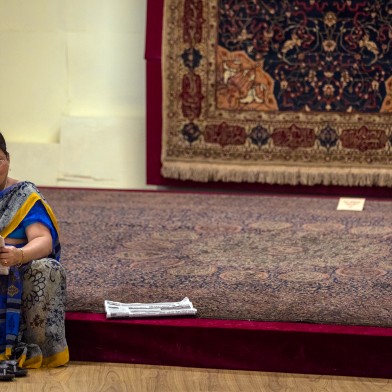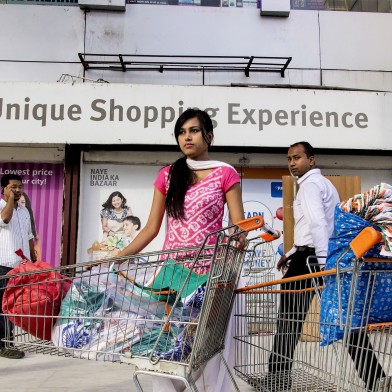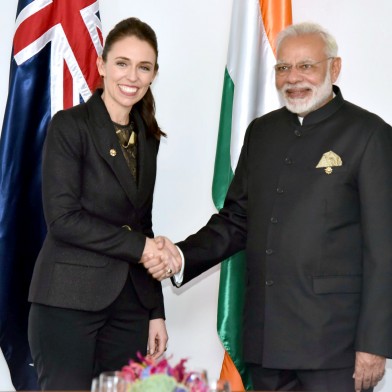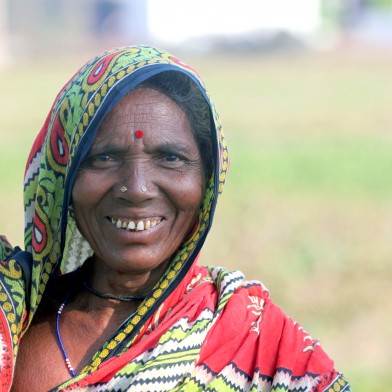Shane Cowlishaw writes: I’ve lived in Japan, backpacked in southern China, and hiked across the Myanmar border. A few days reporting in Delhi would be a piece of cake – or so I thought.
OPINION: These days I’m a grizzled 30-something father, but I spent much of my twenties living and traipsing across Asia.
There were years spent living in Japan and South Korea, plus the obligatory Thai beach sojourns. But there were also some pretty intrepid trips; backpacking in southern China in 2002 was no joke, nor was hiking across the Myanmar border back then.
So when my plane began to dip towards Delhi, I felt pretty comfortable that my short time in the Indian city would be relatively simple. Turns out I was wrong.
Delhi is immense, and not only because of its 25 million-odd population. The heat, the traffic, the smells. The frenetic need for people to move from one place to another at breakneck speed; it was overwhelming.
“Delhi is a labyrinth of alleyways and rickety buildings, with street names and numbers often providing little assistance.”
—
I was in the city for five days to look at how the international education industry had reacted to New Zealand cracking down on a swarm of students from India. Things had gotten out of control a few years ago, with some lax laws quickly pounced upon by unscrupulous agents.
The flow has been stemmed, but I wondered where New Zealand now sat in the multi-billion dollar industry. Before arriving, I had done some pre-interviews, got some tips from local sources and contacted the High Commission for some help.
The latter was useful, and staff even invited me to a cocktail evening with the Black Caps they were hosting, but what I was really there to do was talk to those at the coalface.
Finding these people was a little more difficult than I thought. Delhi is a labyrinth of alleyways and rickety buildings, with street names and numbers often providing little assistance.

Shane Cowlishaw at a farm in Sri Lanka supported by Fonterra.
On my first day, I thought I would save some money by using Uber or the local equivalent Ola to get from A to B.
But the trouble was, the addresses I had often only plonked me in the general vicinity and after several fruitless, hot and dusty hours with little to show, I began imagining returning home with nothing to show.
A stroke of luck on the second day was the saviour. I decided to splash the cash and hire a local driver. I hit the jackpot with Narain, who not only knew Delhi like the back of his hand but had a brother who had studied in New Zealand before.
With a shared passion for my task we struck a quick bond and the rest of my time was spent being whizzed around to not only my planned stops but also local agents and businesses suggested by my friendly chauffeur.
After my success in India, I felt confident heading into the second leg of my trip, Sri Lanka. I had three days in the capital, Colombo, and aimed to write two stories – a long-read on the opportunities for New Zealand businesses in the country, and a shorter news story on the future of an elephant promised as a gift when John Key visited in 2016.

Sipping tea with Merrill Fernando, the founder of Dilmah, was the highlight of my time in Sri Lanka, writes Shane Cowlishaw.
My first reaction when I arrived in the country? Man, I’m ignorant.
I don’t know why, but for some reason I expected Sri Lanka to be similar to India. But the island-nation struck me as being more like the Pacific than its behemoth of a neighbour, with the humid climes, beautiful beaches and laid-back ‘island time’.
My time in Sri Lanka was a joy, but all too short. The days flitted by filled with visits to Fonterra factories and tuna canning lines.
I talked to conservationists fighting for the preservation of the country’s elephants and sat down with Foreign Affairs State Minister Vasantha Senanayake.
But the highlight undoubtedly was sipping tea at the home of Merrill J Fernando. The founder of Dilmah, and known to most from the “Do Try It” tea ads, extended his hospitality despite it being a public holiday. While ordering tea under his watchful gaze was a nerve- wracking experience, his generosity and wisdom is a lasting memory and one that perfectly represents the beauty of Sri Lanka and its people.
Shane Cowlishaw, Newsroom’s National Affairs Editor, travelled to India and Sri Lanka in 2017 to research and write a string of stories, including features on international education and growing trade with New Zealand. His travel to India and Sri Lanka was supported by an Asia New Zealand Foundation media travel grant.
– Asia Media Centre



